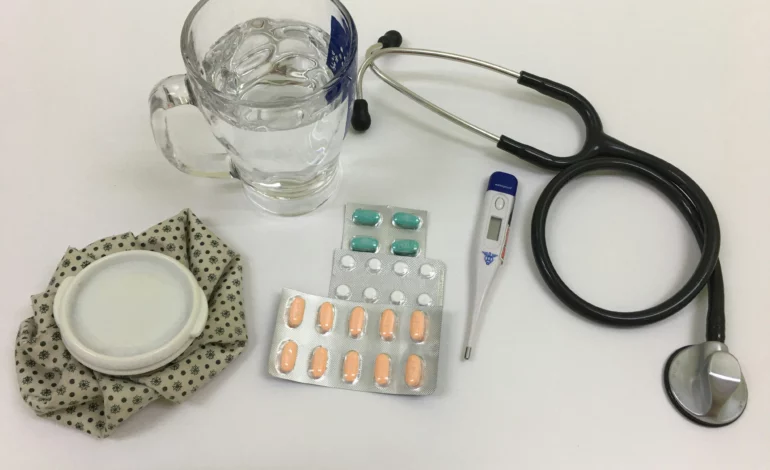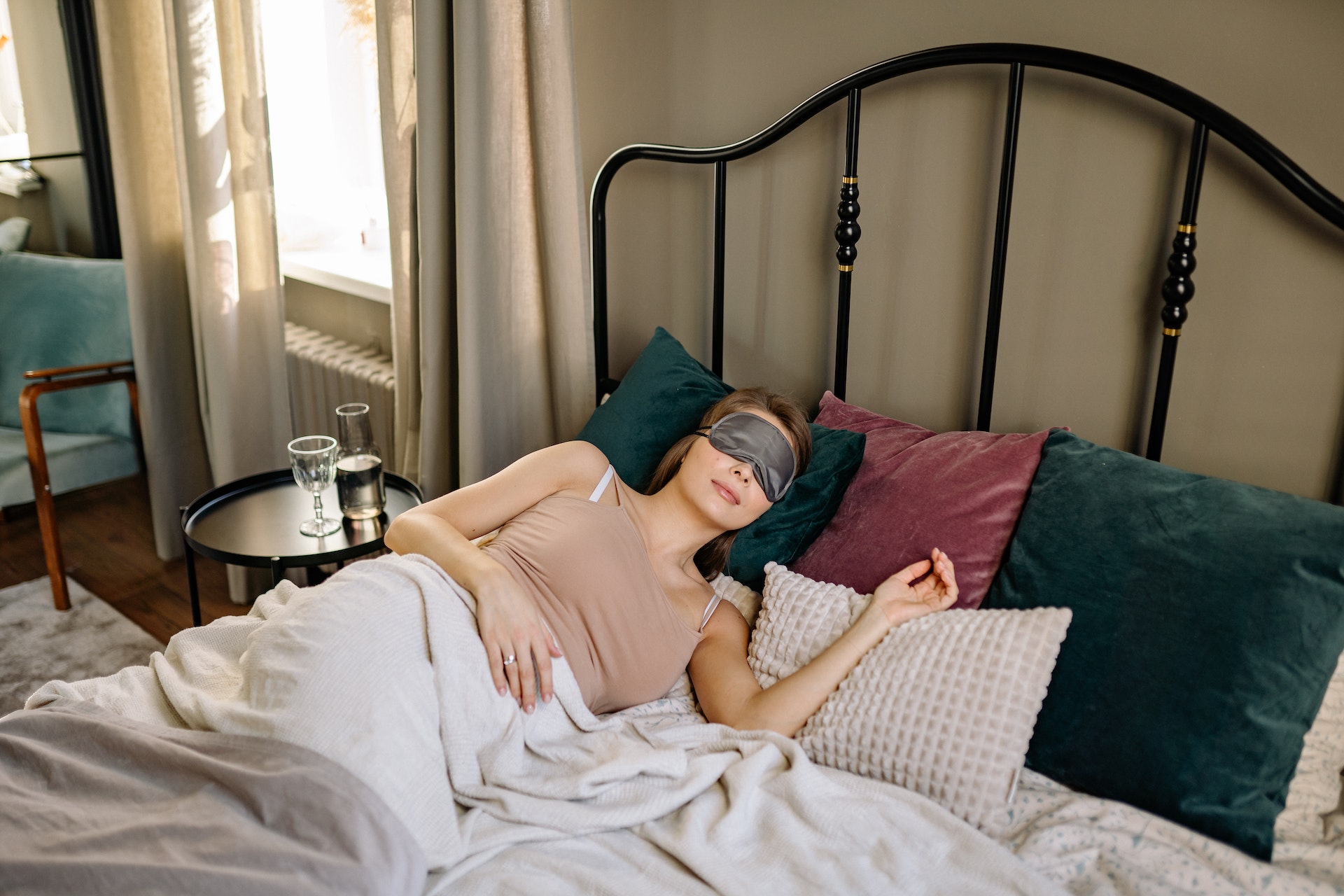7 Tips to Sleep Well When You’re Sick

Are you feeling under the weather and struggling to get a good night’s sleep? We’ve all been there. When you’re sick, sleep becomes even more crucial for your recovery. Let us share 7 tips to help you sleep well when you’re not feeling your best. From creating a cozy sleep environment to managing fluid intake, these practical suggestions will have you drifting off into dreamland in no time. Let’s dive in!
Maintain a Consistent Sleep Schedule
Maintaining a consistent sleep schedule is key to promoting better rest, especially when you’re feeling under the weather. Try to go to bed and wake up at the same time every day, even on weekends. This routine helps regulate your body’s internal clock, making it easier to fall asleep and wake up naturally.
Consistency is important for ensuring that your body gets the rest it needs to fight off illness effectively. By sticking to a regular bedtime routine, you signal to your brain that it’s time to wind down and prepare for sleep.
Avoiding erratic sleep patterns can also help improve the quality of your rest. When you establish a consistent schedule, you may find yourself feeling more refreshed and rejuvenated upon waking up in the morning.
So, make it a priority to maintain a steady sleep routine even when you’re sick – your body will thank you for it!
Create a Comfortable Sleep Environment
When you’re feeling under the weather, creating a comfortable sleep environment can make a world of difference in how well you rest. Start by ensuring your bedroom is cool, dark, and quiet – ideal conditions for a peaceful night’s sleep.
Invest in quality bedding and pillows that support your body and help alleviate any discomfort caused by sickness. Soft, breathable fabrics can also enhance your comfort level and promote relaxation.
Consider using essential oils like lavender or eucalyptus to create a soothing atmosphere in your bedroom. These scents have calming properties that can help ease both your mind and body into sleep.
Eliminate any distractions such as electronics or clutter that may disrupt your rest. A tidy space free from screens can signal to your brain that it’s time to unwind and drift off peacefully.
Stay Hydrated but Manage Fluid Intake
When you’re feeling under the weather, staying hydrated is crucial for your recovery. Sipping on water, herbal teas, or clear broths can help soothe a sore throat and keep your body functioning optimally. However, it’s important to manage your fluid intake wisely.
Consuming too much liquid before bedtime may result in frequent trips to the bathroom during the night, disrupting your sleep. To avoid this, try to hydrate consistently throughout the day but taper off in the evening hours.
Opt for warm beverages like chamomile tea or hot water with lemon to not only quench your thirst but also provide comfort and relaxation before bed. Avoid sugary drinks or caffeinated beverages that can interfere with your ability to fall asleep peacefully.
By balancing hydration with mindful fluid intake management, you can support your body’s healing process while ensuring a restful night’s sleep despite being sick.
Use Humidifiers to Ease Breathing
Dry air can make breathing feel even more challenging when you’re sick. Using humidifiers in your bedroom can help ease congestion and soothe irritated sinuses. These devices add moisture to the air, creating a more comfortable environment for sleeping.
Humidifiers come in different types, such as cool mist or warm mist, so you can choose what works best for you based on your symptoms and preferences. Be sure to clean your humidifier regularly to prevent mold and bacteria growth.
Adding essential oils like eucalyptus or peppermint to your humidifier can also provide additional relief for stuffy noses and coughs. The calming aroma of these oils can promote relaxation, making it easier to drift off into a restful sleep.
Consider using a humidity monitor in your room to ensure that the levels are within the recommended range (around 30-50%). This way, you can adjust the settings on your humidifier accordingly for optimal comfort while you sleep.
Elevate Your Head to Reduce Congestion
When you’re feeling under the weather, congestion can make it difficult to get a good night’s sleep. Elevating your head while resting can help alleviate some of that discomfort. By propping yourself up with an extra pillow or two, you can promote better drainage in your sinuses and reduce that stuffy feeling.
This simple adjustment can also help ease breathing difficulties caused by congestion. When your head is elevated, gravity works in your favor by preventing mucus from pooling in your nasal passages and throat. As a result, you may find it easier to breathe more freely throughout the night.
Whether you choose to elevate your head with pillows or by adjusting the angle of your bed, finding a position that allows for optimal airflow is key. Experiment with different elevations until you discover what works best for relieving your congestion and promoting restful sleep.
Limit Screen Time Before Bed
In today’s digital age, it’s tempting to scroll through our phones or watch TV before bed. However, the blue light emitted from screens can disrupt our sleep patterns by suppressing melatonin production.
To ensure a restful night’s sleep when you’re sick, consider limiting screen time at least an hour before bedtime. Instead, opt for relaxing activities like reading a book or listening to calming music.
By reducing exposure to screens before bed, your body will have a better chance of winding down naturally and preparing for restorative sleep. This simple adjustment can make a big difference in how well you sleep while dealing with illness.
So next time you reach for your phone late at night, try setting it aside and giving yourself the gift of screen-free relaxation before bedtime. Your body will thank you with deeper and more rejuvenating slumber during times of sickness.
Take Medications Wisely
When you’re feeling under the weather, it’s crucial to take medications wisely to help manage your symptoms and get a good night’s sleep. Always read the labels carefully and follow the recommended dosage instructions.
Consult with a healthcare professional or pharmacist if you have any questions or concerns about combining different medications. It’s important to be cautious of potential interactions that could disrupt your sleep.
Avoid taking stimulant medications close to bedtime, as they can interfere with your ability to fall asleep peacefully. Opt for non-drowsy alternatives during the day and save sedating medications for nighttime use.
Remember that over-the-counter doesn’t mean risk-free; some medications may cause side effects like dizziness or nausea that can impact your quality of sleep. Be mindful of how your body reacts and adjust accordingly.
By being informed and mindful of how you take medications while sick, you can better support your body’s healing process and improve your chances of getting restful sleep.
Conclusion
Incorporating these tips into your routine can help you get the rest your body needs when you’re feeling under the weather. Remember, sleep is crucial for healing and recovery, so prioritize your well-being by establishing healthy sleep habits even during times of illness. By maintaining a consistent sleep schedule, creating a comfortable environment, staying hydrated, using humidifiers, elevating your head, limiting screen time before bed, and taking medications wisely, you can improve the quality of your sleep while sick. Sweet dreams and speedy recovery!
Disclaimer: this article does not constitute either medical or any other type of advice. The article contains the author’s personal opinion and personal conclusions and observations. If you have sleep problems or interested in other issues related to it, it is better to consult medical expert e.g. your doctor etc.









